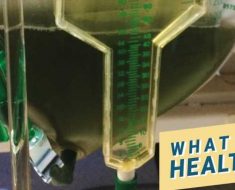
A genome-wide association study has identified five new genetic risk loci that can pass on risk for harmful alcohol use from parents to children, and confirmed one previously identified risk locus. The findings were published in Biological Psychiatry.
The risk variants associated with maximum habitual alcohol use were identified using data from the Million Veteran Program (MVP), a study creating a database of genetic and health information of US military veterans. Habitual alcohol use can lead to alcohol dependence and is connected to many health problems. The findings provide insight into the role of genetics in this behavior.
“Even in this era of large samples for genetics studies, the MVP sample stands out: it is one of the largest samples collected so far using the same questions to assess alcohol use; and it includes many socioeconomically disadvantaged individuals and people of non-European descent, who are underrepresented in most other such studies,” said first author Joel Gelernter, MD, Yale University School of Medicine.
This diversity of the sample allowed the researchers to divide nearly 144,000 participants based on African or European ancestry and included the largest single African-ancestry sample studied thus far for the genetics of alcohol. Integrating the unique genetic histories of the African-American and European-American subpopulations in a meta-analysis greatly improved the genetic mapping precision of the analysis. Using this approach, Dr. Gelernter and colleagues identified a strong association of maximum habitual alcohol use with a new risk locus, CRHR1, corticotropin-releasing hormone receptor 1.
“Habitual excessive alcohol consumption is the most difficult to treat because of its compulsive nature. This study provides new insights into mechanisms that may drive this behavior. Interestingly, this study implicates CRHR1, a gene previously implicated in stress response. By implicating this gene, this study may suggest a link between the propensity for a heightened stress response and the risk for habitual alcohol use,” said John Krystal, MD, Editor of Biological Psychiatry.
When the subgroups of differing ancestry were analyzed separately, the locus most strongly associated with maximum habitual alcohol use, gene ADH1B, was the same in both populations. This gene has been flagged in previous genome-wide studies, confirming its importance in genetic risk for many traits related to alcohol use and abuse. Three new loci were also identified in the European-American group, including CRHR1.
The alcohol-related genetic loci—taken as a whole across the genome—were associated with many other traits, including tobacco smoking, socioeconomic status, physical activity, and other health complications, highlighting the pervasive effects of habitual alcohol use on many other aspects of health and behavior.
Source: Read Full Article





